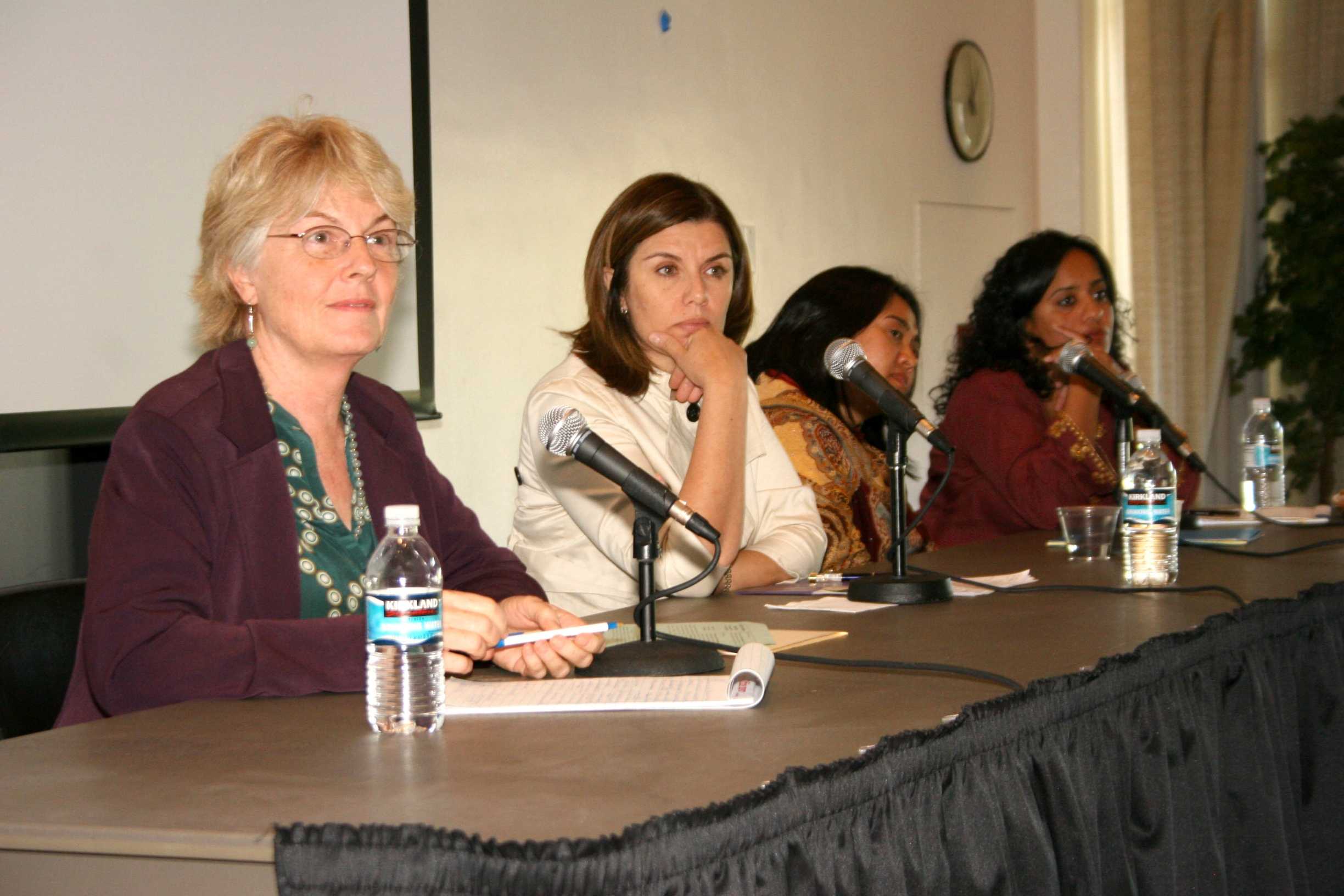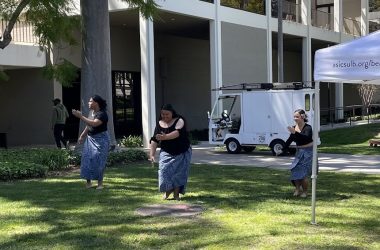Panelists discussed how women organizations in various gender-oppressive countries utilize religion to incite the social development of woman rights Tuesday in the USU Ballroom. They hope that women do not succumb to any gender biased religious blockades and continue to fight for their rights.
“Religion is intertwined with public policy in many countries, so this method proves to be effective,” said Sherine of UC Riverside.
Ellen Gruenbaum of Purdue University spoke of female genital cutting (FGC) in Sierra Leone and explained how the practice is a ritual for initiation into secret women’s societies. Although it is seen as a horrid tradition in the West, Gruenbaum said the woman in these communities do not view them as such.
“The secret societies are very important within the communities,” Gruenbaum said. “So FGC is positively associated with the desired membership.”
According to Gruenbaum, 90 percent of woman in the west African country have undergone the procedure. She said the community sees it as a joyful celebration, marking the transition from childhood to womanhood at about age 10.
“Females who have not been cut are not considered a proper woman in the society,” Gruenbaum continued. “A proper woman is a woman to marry.”
Gruenbaum pointed to Pentacostal groups as the few organizations in the region that opposes FGC. She said that while Western backed organizations, such as UNICEF, placed ceasing genital cutting on their agenda, it is not their first priority.
“Other things take precedent in a war ravaged and poverty stricken area like providing food and improving literacy,” said Gruenbaum.
Azza Basarudin and Khanum Shaih, both PhD candidates at the Department of Women’s studies at UCLA, spoke about how women have also been motivated by religion in the countries they study.
Muslim women in Malaysia, as Basarudin discussed, have been motivated to understand their place in Islam by reading a non-translated Quran, despite the Islamic beliefs that only religious leaders can interpret the Quran.
“The Sisters of Islam is an organization that tells women they can read the Quran themselves and try to understand it,” Basadurin said. “They try to initiate women’s rights by stressing the importance of interpreting the Quran in their proper contexts.”
Such interpretations include interpreting the Quran passage on polygamy that states a man can marry up to four wives, but only if that man can be just to all his wives. Sister of Islam members stressed that a man cannot possibly be just to more than one wife, so a man would not be a good Muslim if he practiced polygamy.
“Their goal is not to break the patriarchal monogamy of reading the Quran and give women a voice,” Basadurin said.
Sisters of Islam is viewed as a group of women warriors trying to reform Islam from within. However, they have encountered great resistance from Islamic officials who say that since many of the women are not fluent in Arabic, they are not credible translators.
Some students were not only surprised by the issues women face, but by how predominant religion is in their society.
“Personally I am an atheist and think religion is oppressive,” said Molly Kim, a junior psychology major. “I’m shocked at how religion is such a factor in these people’s lives.”





This article contains a lot of typos, misquotation and intepretation of the panelists presentation.
Sounds like an interesting panel. Unfortunately the author of this article mis-spelled and mis-quoted on several occasions and didn’t do the panelists justice.
It’s great to hear that we have these programs on campus, I would love to attend them if it weren’t for the fact that I only hear of them after they happen. I think our campus would benefit with more advertising and more-accessible information for campus events.